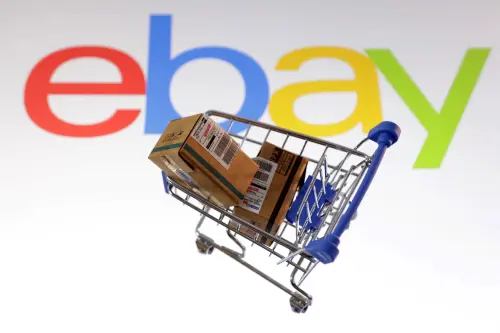On February 26, E-commerce company eBay forecasted first-quarter revenue below Wall Street estimates, attributing it to economic uncertainty leading less affluent buyers to reduce discretionary spending. This announcement caused a nearly 9% drop in its shares in after-hours trading.
Challenges from high interest rates and persistent inflation over the past two years have dampened consumer spending, particularly affecting the demand for non-essential products. eBay's Chief Financial Officer Steve Priest highlighted the tough macro environment, especially in Europe, paired with uncertainties surrounding U.S. tariffs and the de minimis threshold.
The recent initiatives by the U.S. government to adjust tariffs on low-value shipments and Chinese imports have added pressure on businesses like eBay. Despite these challenges, CEO Jamie Iannone noted that eBay's luxury and collectibles segments are performing well, indicating that the impact might be more pronounced on lower-income consumers.
eBay faces stiff competition from giants like Amazon and China's Alibaba Group in the online marketplace sector. Additionally, the removal of selling fees for consumer-to-consumer sellers in the UK, except for domestic car sales, is expected to further squeeze eBay's profit margins.
For the first quarter, eBay anticipates revenue between $2.52 billion and $2.56 billion, falling short of analysts' expectations of $2.59 billion. Similarly, the gross merchandise volume for the quarter is projected to be between $18.3 billion and $18.6 billion, below the estimated $18.8 billion.
In the fourth quarter ending on December 31, eBay reported revenue of $2.58 billion, slightly surpassing analysts' average estimates of $2.57 billion according to data compiled by LSEG.
